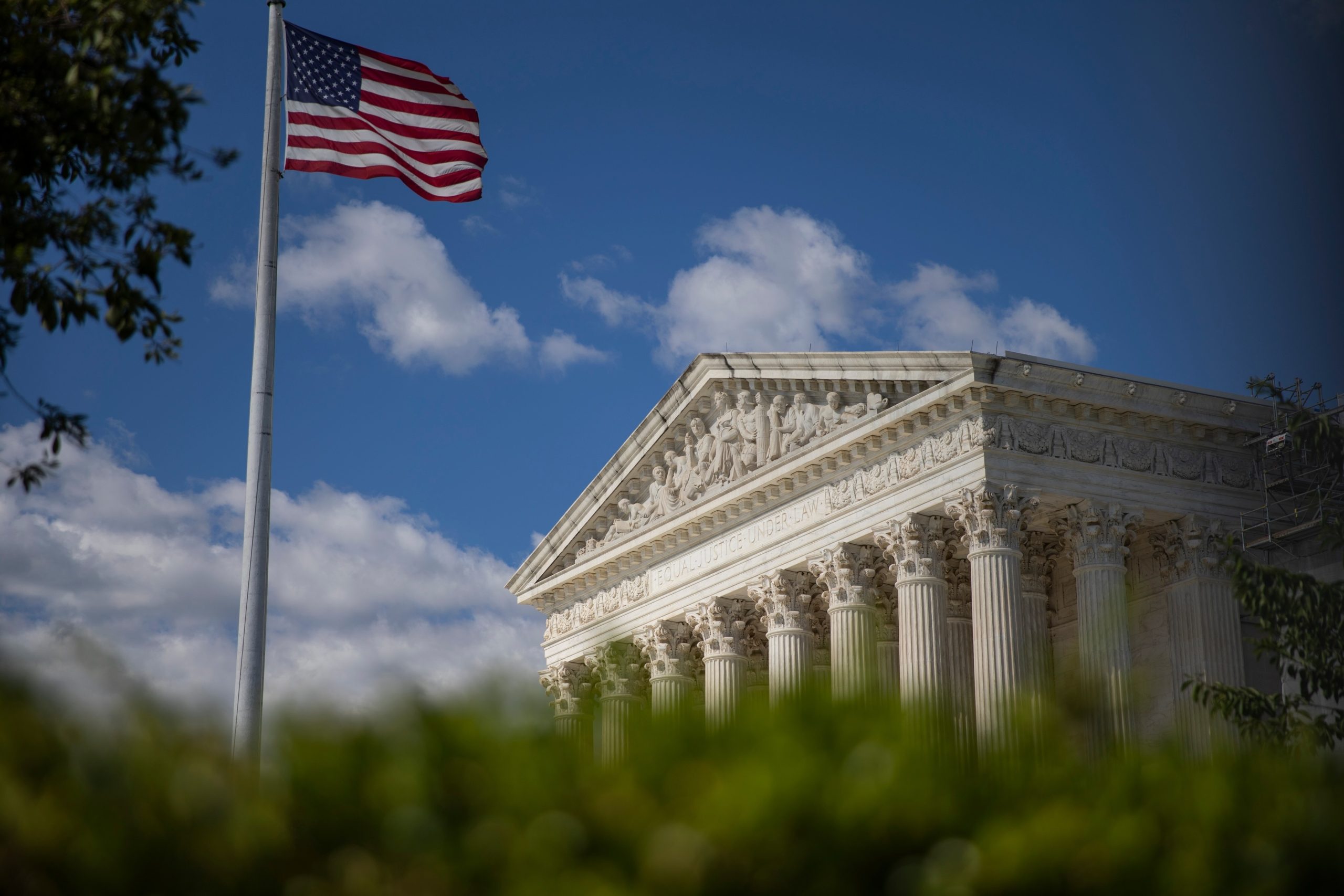ARGUMENT ANALYSIS
Justices inclined to respect corporate identity in trademark dispute

on Dec 12, 2024 at 4:58 pm

The justices showed little appetite for breaking new ground when they heard argument on Wednesday in Dewberry Group v. Dewberry Engineers, a long-running dispute between similarly named groups of real-estate companies. The question before them is whether to uphold the judgment of a lower court that awarded damages for profits earned not only by the entity named as a defendant in the lawsuit, but also by several other entities that were not parties to the litigation.
From the earliest moment of argument by Thomas Hungar, representing the Dewberry Group’s effort to limit the damage award, it seemed clear that none of the justices were interested in affirming the lower court’s decision. The question, rather, was how much they would say beyond a succinct expression of disagreement.
When Hungar told Justice Sonia Sotomayor that the line of reasoning about which she was questioning him was “never made in this case and is not presented,” she brushed him aside commenting that he raised “an issue of remand” to be decided “in the discretion of the courts below,” reflecting her off-hand assumption that the lower court’s decision would be vacated and the case sent back for further proceedings on that basis.
To offer a sense of the various ideas that populated the argument — Sotomayor spent much of her time on the idea, found in the government’s brief, that the defendant might have sold services to related parties at unduly low prices, depressing its profits. Her perusal of the government’s “friend of the court” brief, which contended that the lower courts’ decisions were incorrect but also disagreed with Dewberry Group’s argument regarding how the profits should be calculated, left her interested in exploring a “simple theory” under which the court would “estimate how much th[e defendant] would have received if there had been an arm’s length transaction, what would have been the value of their services, and if they would have received that, what’s the profit that they would have made.”
Although Sotomayor’s comments suggested a willingness to address some of the new justifications raised in the briefs to the justices, Justice Samuel Alito repeatedly offered a different perspective. As he put it, “if the judgment at issue cannot be sustained on the ground that was adopted by the court of appeals, why would we go further” and simply suggest a theory for the lower court to consider when the case returns to it.
In the same vein, Justice Amy Coney Barrett pressed Nicholas Crown, representing the government, to explain why the government wouldn’t “be satisfied with our just answering” the question presented in the case and then “just leaving it to the lower court.” It “seems to me that could be a pretty short opinion,” posited Barrett, for whom it was central that “we didn’t grant cert on these other questions, which were not vetted below.”
When Elbert Lin rose to defend the decision of the lower court, he tried valiantly to walk a narrow path in which he did not concede that the lower court’s decision was incorrect but at the same time did not try to defend the reasoning it offered to support it. Observing that effort, Justice Neil Gorsuch pressed Lin hard and – though reasonable minds might differ – came pretty close to extracting an explicit concession that the rationale for the lower court’s opinion was indefensible.
I would not think it will take the justices long to decide this one. Not a word was said at the oral argument to suggest anybody would propose affirming the decision below. Nor does there seem to be any disagreement about precisely what is wrong with that decision: Generally when you pick the defendants, you are picking the entities whose profits you can extract as damages. The only thing left to decide is what the court will say to the lower courts about the various arguments presented in the briefing in the Supreme Court that have not previously been raised before those courts. It is hard to imagine the justices taking long to reach an agreement on that question.


